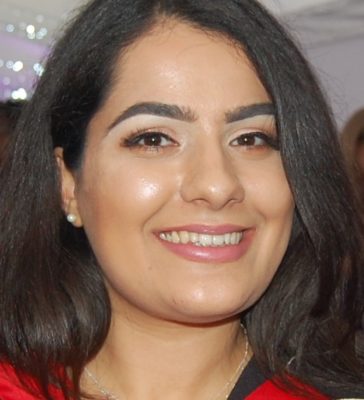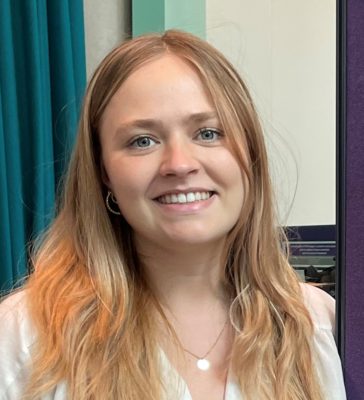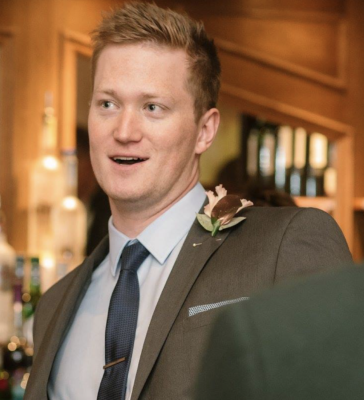
Mozhgon Jeddi
Current Employer/Organisation Name
Harlow College
What have you been doing since leaving Exeter, and what are you doing now?
Since graduating from University of Exeter in 2014 with a BSc Hons in Medical Science, I pursued a teaching career in Further and higher Education. I started at University Centre Harlow during which I delivered Year 1 Human Anatomy and Physiology and Year 2 Principles of Genetics university modules as part of the Bioscience BSc (Hons) degree at Anglia Ruskin University. I was then awarded the National Heart and Lung Foundation Scholarship to attend Imperial College London to study an MSc in Genes, Drugs and Stem Cells; Novel Therapies. This was an excellent opportunity to specialise in gene and nucleic acid based therapies with expertise from world leaders in this field. My MSc project was based on aberrant cell-cell interaction at the cardiac intercalated disc and I was very fortunate to be co-supervised on this project. Following this, I devised and delivered an Anatomy and Physiology module and the Foundations in Biomedical Science module as part of the Extended BSc Degrees in Medical Science, Pharmaceutical Science and Nutrition at Anglia Ruskin University. With an interest in teaching, I continued my teaching portfolio at Harlow College and became the lead A Level Biology Teacher and Course Leader for the Access to Medicine Diploma. This involved designing, planning and preparing sessions to ensure teaching and learning maximised achievement and progression of students at the College. I was then promoted to a Learning Coordinator at Harlow College to lead and coordinate the internal verification process and I have also set up a coaching program for continual professional development of staff in the department. Alongside this role, I am also an External Moderator at The Cambridge Access Validating Agency. In this post, I independently conduct interim and end of year moderation for the Access to Higher Education Diploma in Veterinary Studies at Capel Manor College, London.
Why did you choose this career? And what do you enjoy most about your work?
My interest in the Education sector is rooted in my interest in continued learning and my passion for imparting my knowledge to students so that they may progress onto their chosen career paths. It is very rewarding to see the confidence and interest grow within students in a subject that I am teaching and this makes my job very unique and enjoyable.
Please tell us if you were a member of any societies, groups or sports clubs?
In addition to this, I completed the Exeter Award which provides recognition from the University of Exeter for optimising employability prospects as an Undergraduate student.
What did you enjoy most about your programme and what was the biggest highlight?
I really enjoyed the problem-based learning as part of the Integrated Clinical Science module which spanned all years of the degree programme. This was an excellent opportunity to learn about anatomy, physiology and pathophysiology in a single case study as well as devise informative research questions to elucidate the underlying biological concepts that were being taught in the case study. I also liked the fact that we were encouraged to move out of our comfort zone and critically appraise scientific literature from different fields including Genomics, Microbiology, Neuroscience and Cardiovascular Science. The biggest highlight of my Degree was the opportunity to complete my Professional Training Year in a Structural Cardiovascular Lab at Imperial College, during which I presented my research at national and international conferences and gained a realistic insight into cardiovascular research as well as gaining an extensive professional network.
What did you enjoy most about studying here?
I enjoyed the beauty of Exeter and in particular St Luke’s campus, where I spent much of my time as part of my Degree. There was always a new treasure to discover, including Reed Hall on Streatham campus which was very beautiful on a Summer’s day. I also appreciated the opportunity to discuss scientific matters with enthusiastic and approachable teaching staff who were very supportive towards our learning.
Why did you choose to study at Exeter?
I chose Exeter because of the uniqueness of the Medical Science degree which offered the professional training year in the third year of studies. I was determined to graduate from a reputable University with a Degree that would set me apart from other candidates in a competitive job market, and this was the perfect fit for my decision.
What skills and experiences have been most useful for your career?
Being able to be adaptable and flexible early in your career is a key skill for success later in your career. It provides a stepping stone to excel as it provides an opportunity to gain a network and meet like-minded individuals in your field. In addition to this, experiencing a variety of teaching positions in both Further and Higher Education has given me a true insight into which post I would most likely pursue in the Education sector in the future.
What advice would you give to a current student who wishes to pursue your career?
Use your Degree programme as an opportunity to complete a placement year if this is possible. This is a unique opportunity to gain valuable work experience as well as build useful contacts for a graduate level job when you successfully graduate from the University of Exeter. In order to embark on a teaching career, consider gaining work experience in a school or college to see if this is a setting which you could build a career in.
What are your plans for the future?
Broadly, I aim to expand my knowledge of both the Education and Healthcare sector and combine my knowledge and experiences in these two fields to advise organisations to optimise their procedures for improved outcomes.

